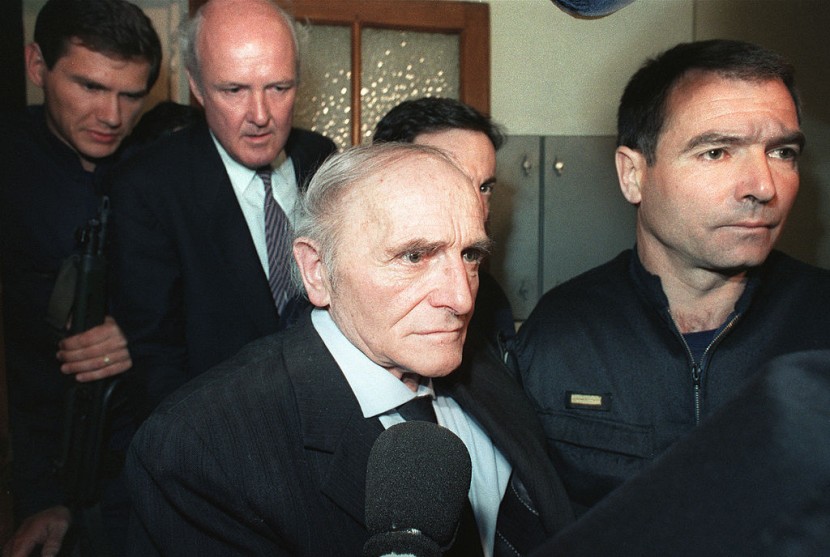
The Butcher of Lyon 'Klaus Barbie' was in charge of torturing and killing prisoners, mostly Jews and members of the French resistance. On January 19, 1983, he was arrested in Bolivia for his heinous atrocities, including the death of almost 14,000 victims and the repatriation of 7,500 others, thus branding the wicked Nazi commander as a butcher.
At the age of 22, he enlisted the SS and started working in its security division, which functioned as the Nazi Party's intelligence collection branch.
Kalus Barbie escaped under American protection
Around 1942, he was dispatched to Lyon as that of the head of the Gestapo after the German conquest of France.
He captured and skinned a French resistance leader alive and drenched his head with ammonia and cold water, causing severe burns that stopped him from sitting or standing for three days, which led to his death.
Adolf Hitler awarded him the Iron Cross (First Class) for his operations against the French Resistance during 1943. He captured Jean Moulin, a high-ranking member of the French Resistance and his most prominent captive, reported the Daily Star.
Barbie also authorized the deportation of a set of 44 Jewish children out of an orphanage to the horrific Auschwitz death camp around 1944.
He was able to escape persecution for his crimes following the fall of Nazi Germany and was used by the Americans to further anti-communist efforts in Europe.
Notwithstanding French demands for his repatriation in an attempt to implement the death penalty for the Butcher of Lyon, the US allegedly was reluctant to hand him over and assisted him in escaping to Bolivia in South America in early 1951.
Historian Robert Wolfe, the Counter Intelligence Corps (CIC), did not want to hand him up to Paris because they were afraid of communist influence inside the French government, considering that Barbie knew too much about the CIC's network of German spies embedded in European Marxist organizations, cited Techno Trendz.
He also argues that they may have sheltered Barbie in place to evade humiliation over having recruited him in the first instance.
Using an alias of Klaus Altmann, he maintained a comfortable life in the South American country for thirty years, cooperating with General Barrientos' regime in their state persecution of leftist groups, noted the New Zealand Times.
Throughout 1972, Barbie aided in the unlawful detention, coerced confessions, and murders of the opposition and progressive groups. They, including journalists and activists that wrote or spoke out against the government's human rights violations, were favorite victims.
Butcher of Lyon arrested, sentenced
In the late 1970s, the butcher met with notorious drug lord Pablo Escobar and promised to guarantee the protection of Escobar's raw coca supply from planting to processing in Colombia.
Even after being identified and interviewed by a French journalist in 1972, the Bolivian government has refused to surrender him to France. He had multiple times been sentenced to death in absentia.
Claims that the nation did not have an extradition concordat with Paris; and that the limitation period on his crimes had expired.
Barbie was detained on January 19, 1983, by the newly elected democratic government mostly on the pretext of owing the government $10,000 for things he was supposed to have delivered but did not. He was handed over to the French to stand trial a few days later.
He was tried and sentenced to life imprisonment two months after the trial started after the death penalty was banned in France in 1981.
The Butcher of Lyon did not escape justice as his fortunes turned, murdering his way from World War 2 to the present, as he killed with no compunction.
Related Article: Historians Reveal Letters Penned by Hitler in His Final Days in the Bunker After Getting Lost For More Than 70 Years








